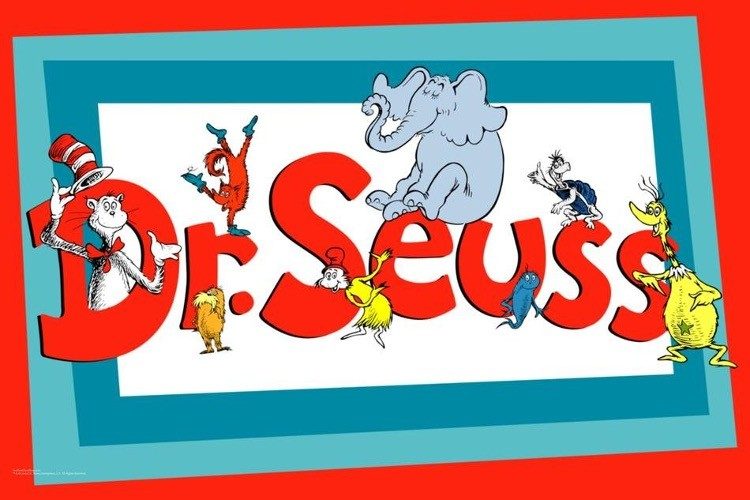
President Joe Biden omitted references to beloved children’s book author Theodor Seuss Geisel — known as Dr. Seuss — from the annual proclamation for “Read Across America Day,” a day that was established in part to celebrate the author’s March 2 birthday as well as a way to promote children reading.
The omission comes amid a leftist push to “cancel” Dr. Seuss books over a “lack of diversity” in the author’s characters and perceived “racist images” in some of the books.
Biden’s omission of Dr. Seuss runs contrary to the opinion of Barack Obama, who in 2016 called Dr. Seuss, “one of America’s revered wordsmiths,” and a person who “used his incredible talent to instill in his most impressionable readers universal values we all hold dear.”
But those values that President Obama praised have been under attack by the leftist cancel-culture mob over the past few years.
Much of the leftist anger over the children’s author stems from a 2019 study authored by Katie Ishizuka and Ramon Stephens entitled The Cat is Out of the Bag: Orientalism, Anti-Blackness and White Supremacy in Dr. Seuss’s Children’s Books.
The study accuses Dr. Seuss of creating “an extensive body of explicitly racist published works dehumanizing and degrading Black, Indigenous, and People of Color (BIPOC), and people from other marginalized groups (including Jewish people and Muslims).”
Last week, the Loudon County Public Schools in Virginia ordered teachers to avoid “connecting Read Across America Day with Dr. Seuss,” citing Ishizuka’s and Stephens’ study and alleging that Seuss’s work was full of “orientalism, anti-blackness and white supremacy.”
Amid community backlash, the district was forced to issue a statement letting the public know that Dr. Seuss books were still allowed in the district — but also that they weren’t necessarily wanted.
“Dr. Seuss books have not been banned in Loudon County Public Schools,” the statement read, before adding, “Research in recent years has revealed strong racial undertones in many books written/illustrated by Dr. Seuss.”
You may recall that Loudon County Public Schools forwarded a plan last autumn that would have punished teachers who criticized the teaching of Critical Race Theory — a plan they ultimately dropped partially due to teacher’s union resistance.
“We continue to encourage our young readers to read all types of books that are inclusive, diverse and reflective of our student community, not simply celebrate Dr. Seuss,” the school board’s statement said.
But back in 1998, it was the progressive National Education Association (NEA) that first connected “Read Across America Day” with Dr. Seuss and his birthday. In fact, for many years, the day was also referred to as Dr. Suess Day.
Now, the NEA has cut its ties with Dr. Seuss. Its website celebrating Read Across America completely omits any mention of Dr. Seuss or his books, instead claiming to celebrate “inclusive stories so that kids across the country can see themselves reflected in a book.”
Instead of Dr. Seuss, the NEA chose to celebrate books of transgender propaganda such as I am Jazz; My Rainbow, and When Aidan Became a Brother.
Last year, Dr. Seuss Enterprises, the company responsible for publishing Dr. Seuss books and selling merchandise, bowed to left-wing pressure and decided that it would no longer publish six of the author’s books due to “racially insensitive” themes and art work. The six books that will no longer be available are And to Think That I Saw it on Mulberry Street; If I Ran the Zoo; McElligot’s Pool; On Beyond Zebra!; Scrambled Eggs Super, and The Cat’s Quizzer.
“These books portray people in ways that are hurtful and wrong,” said a statement from Dr. Seuss Enterprises. “Ceasing sales of these books is only part of our commitment and our broader plan to ensure Dr. Seuss Enterprises’s catalog represents and supports all communities and families.”
Those of us who grew up reading and enjoying The Cat in the Hat and Green Eggs and Ham might be surprised at the implications that Dr. Seuss was a white supremacist. How could the author of Horton Hears a Who! — a book that celebrates love and respect for creatures that are different from others — be a racist?
Perhaps it’s not really about Dr. Seuss supposedly being a racist. Maybe those who wish to remove him from American culture are just being Grinches.




